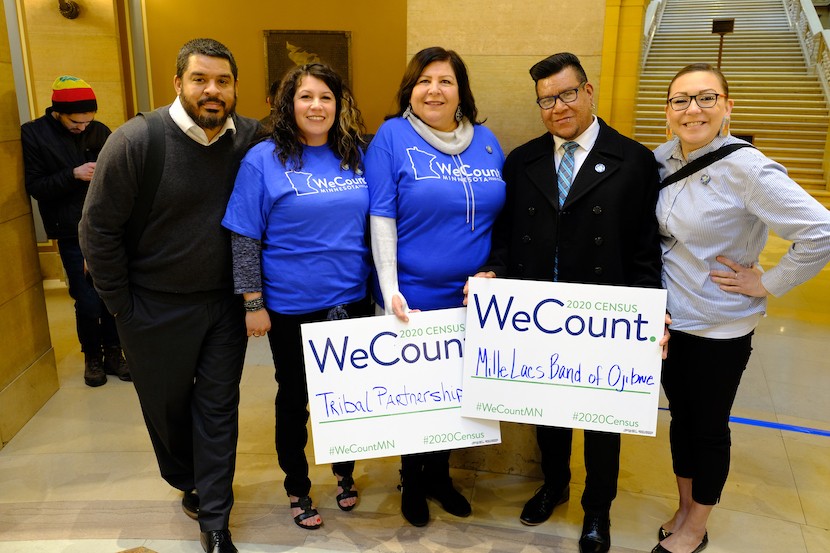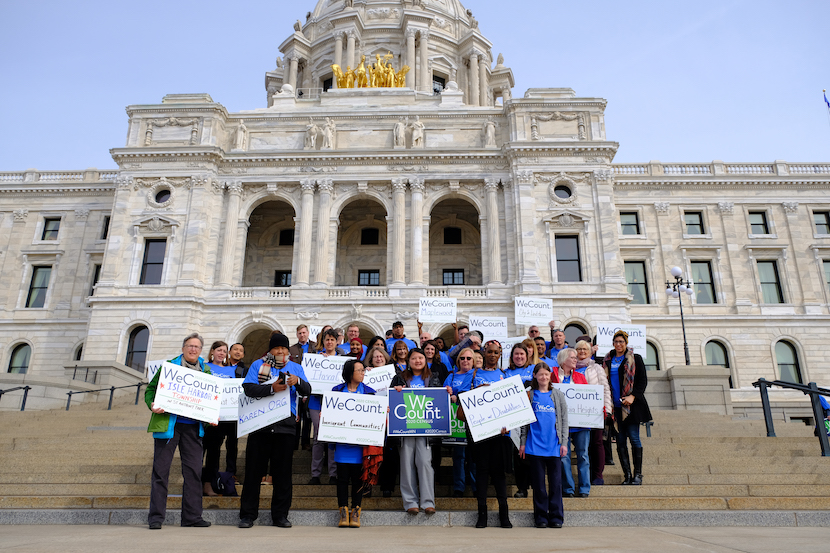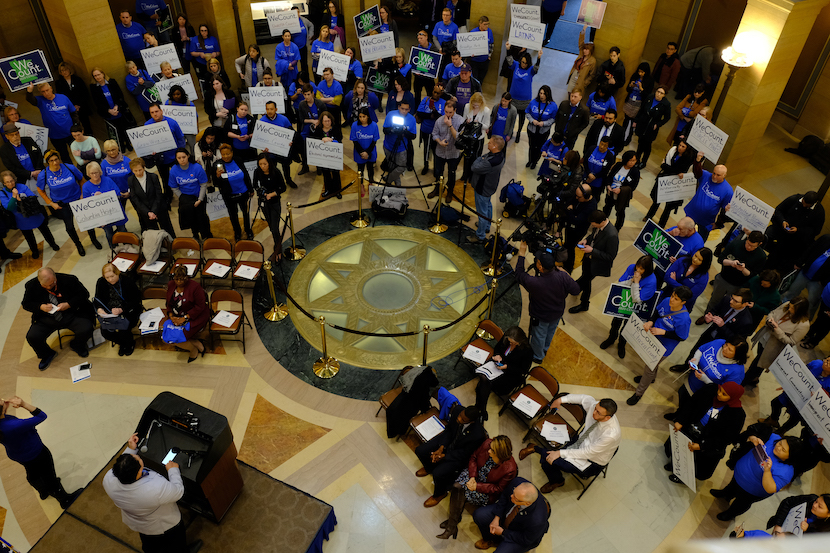
We're one year away from the 2020 census, and tribal leaders are pushing for full participation for one simple reason: "The money follows the numbers," according to Urban Liaison and Project Coordinator Shelly Diaz, who has been tasked by Chief Executive Melanie Benjamin with ensuring a high participation rate. "Everybody deserves to be counted, especially now."
Shelly was one of several Mille Lacs Band members who traveled to the capitol in St. Paul April 1 to bring attention to the importance of the census.
Citizens from around the state heard from several speakers, including Governor Tim Walz and Lieutenant Governor Peggy Flanagan.
Peggy pointed out that the federal government uses the census to determine how to dole out federal funds and how states are represented in Congress.
"Let me put it into perspective," Peggy told the crowd. "Even a single missed person in the census could mean a forfeited $28,000 in federal funding over the course of 10 years. Those are real dollars that affect real communities across the state."
Minnesota nearly lost a seat in the House of Representatives in 2010, and the state is currently ranked behind Montana and California for the final House seat. Minnesota had the second-highest response rate in 2010, which probably helped save its House seat. Officials hope an equally strong showing may have the same effect next year.
Tribal Nations and minority groups have been historically underrepresented in the census. Members of Tribal Nations and minority groups sometimes mistrust the government, given their historical mistreatment, so they are reluctant to participate in the census.
Less than half of Mille Lacs Band members were counted in the last census, which has a dramatic effect on funding for health, education, social services, and the environment.
Shelly stresses that census information is strictly confidential and cannot be shared.
"Get the message out there that it's OK to share your information with the census because those numbers are important and we need to be counted," Shelly concluded.
Are my answers safe and secure?
Yes. The Census Bureau collects data for statistical purposes only. They combine your responses with information from other households or businesses to produce statistics, which never identify your household, any person in your household, or business. Your information is CONFIDENTIAL. They never identify you individually. Title 13 of the U.S. Code protects the confidentiality of all your information, and violating this law is a crime with severe penalties. In addition, other federal laws, including the Confidential Statistical Efficiency Act and the Privacy Act, reinforce these protections. The penalty for unlawful disclosure is a fine of up to $250,000 or imprisonment of up to 5 years, or both. It is against the law to disclose or publish names, addresses (including GPS coordinates), Social Security numbers, or telephone numbers.

